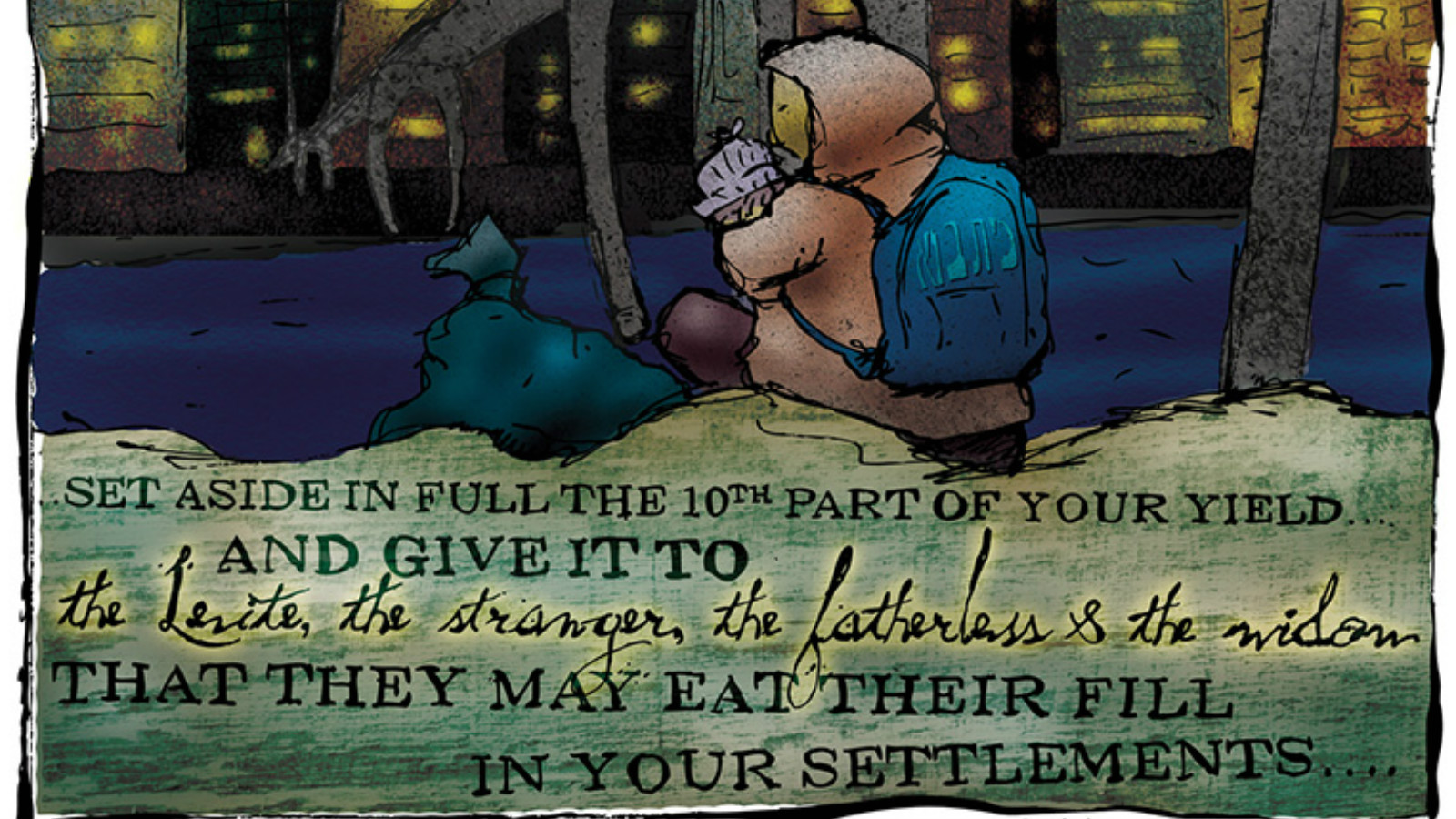Commentary on Parashat Ki Tavo, Deuteronomy 26:1-29:8
Like much of Deuteronomy, Parashat Ki Tavo outlines what the Israelites are to do once they arrive in the land of Israel. As we would expect, after having settled in the land, the Israelites are to plant crops and orchards and vineyards to sustain themselves. But when the harvest ripens each year, each Israelite is commanded to bring an offering of the first fruits to the temple and then recite the following words:
My father was a wandering Aramean. He went down to Egypt few in number and sojourned there; but there he became a great and very populous nation. The Egyptians dealt harshly with us and oppressed us; they imposed heavy labor upon us. We cried to the LORD, the God of our fathers, and the LORD heard our plea and saw our plight, our misery, and our oppression. The LORD freed us from Egypt by a mighty hand, by an outstretched arm and awesome power, and by signs and wonders. He brought us to this place and gave us this land, a land flowing with milk and honey. And I now bring the first fruits of the soil which You, O LORD, have given me. Deuteronomy 26:5-10
In appreciation of this bounty of food and sustenance, the Israelites are not called upon to give thanks for the rain, or the sun, or even the crops themselves. But rather to recall and retell the story of their people — the story of their ancestors. By uttering these words, the Israelites locate themselves not only in the present moment, standing before the priest in Jerusalem, but also in the past, casting themselves as living links in a holy chain stretching back generations.
We live in a culture which subtly encourages the opposite. Consumer culture values the new and disposable over the old and the enduring. But many of us notice this lack. Beneath the distractions of new apps and rapid-fire text messages, we feel the tug to be connected to something lasting and substantial. We long to connect to our roots.
Interestingly, we are growing increasingly aware that it is emotionally healthy to know where we come from. A large body of research indicates that connections to friends, family and community are an essential part of living a happy, healthy life, and responding to life’s challenges with resilience.

Help us keep Jewish knowledge accessible to millions of people around the world.
Your donation to My Jewish Learning fuels endless journeys of Jewish discovery. With your help, My Jewish Learning can continue to provide nonstop opportunities for learning, connection and growth.
One example of this is work by psychologists Marshall Duke and Robyn Fivush from Emory University, who asked children to answer questions about their family histories. Do you know where your grandparents grew up? Do you know where your mom and dad went to high school? Do you know an illness or something really terrible that happened in your family?
The results were striking. The more children knew about their family history, the higher their self-esteem, the higher their sense of control over their lives, and the more successfully they believed their families functioned. The “Do You Know?” scale turned out to be the best single predictor of children’s emotional health and happiness. Summing up his research, Duke said that children who are the most resilient have what he and Fivush call a strong “intergenerational self.” In other words, they are aware that they are part of something larger than they are.
The most resilient and healthy children are the ones with a sense of self that is rooted in family stories of the past that will help shape the stories of the future, who are embedded in a saga that extends beyond their lives. And the stories of the Jewish people, both mythic and historical, can function much like these family stories. When we tell these stories, and locate ourselves within them, we build within us an intergenerational self.
It is perhaps for this reason that the passage from Deuteronomy is also recited at the Passover seder, the holiday that more than any other asks us to connect ourselves to the story of our ancestors. In both Parashat Ki Tavo and on Passover, we can recite this passage knowing that we are an essential part of the drama whose beginnings it traces.
The ancient commandment of the first fruits contains a kernel of wisdom for us today. As we rush through our busy lives, we should find time to pause, appreciate the bounty in our lives, and remember where we came from. Sharing the stories of our families and our people reminds us that if we look beyond the edges of our lifespans, we see that we are not just drifting through time, but that each of us is a precious word in a beautiful, ever-unfolding story.



